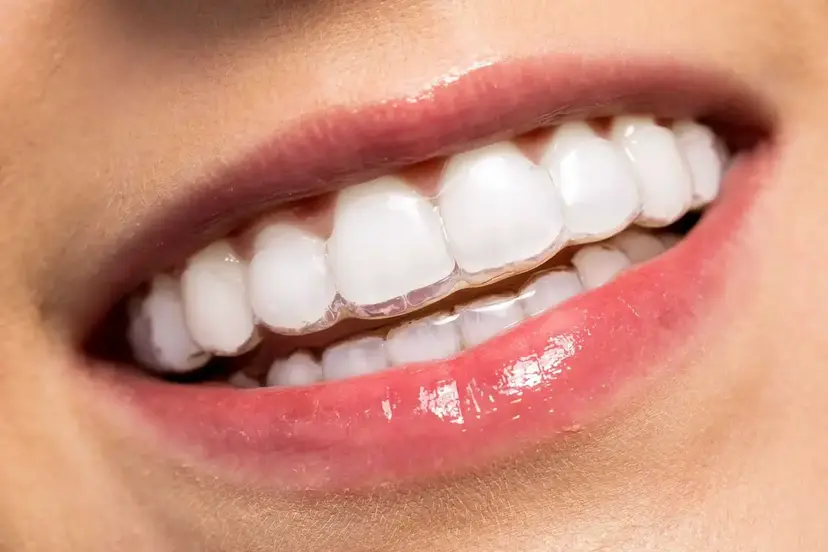MakeO blog
Calcium buildup or tartar, as they are commonly referred to, is not uncommon. Even if your brushing and flossing game is great, you might still develop tartar.
Tartar happens to be a hard layer of bacterial film on the surface of your teeth. Intrigued to learn more about tartar and how they affect your oral health? Keep on reading to know everything you must know when it comes to calcium deposits on the teeth and how you can get rid of them the best way.
What are Calcium Deposits on My Teeth?
Calcium deposits are nothing but tartar that form on your teeth surface. They appear to be off-white chalky marks on your teeth and they make your teeth surface rough. Tartar is the breeding growth for the harmful bacteria in your mouth and they can eventually cause teeth or periodontal diseases.
The Problem With Calcium Buildup
So, why is calcium buildup on teeth so bad? Calcium buildup attracts harmful bacteria and they cause tooth decay and cavities. Not only do they ruin the aesthetics of your pearly whites but they also make your teeth weak and more susceptible to common dental problems like tooth decay, tooth loss and gum diseases.
Calcium buildup can also make your teeth extremely sensitive to cold and hot food items. You must take calcium buildup seriously as it can over time even cause infection or inflammation in other parts of your body if left unaddressed.
Removing Calcium Deposits from Teeth
The good news is that calcium deposits on teeth can be treated. However, you cannot get rid of them at home. You will have to visit your dentist who will scale your teeth with a scaler and scrape out the tartar from your teeth surface. Though it isn’t a painful procedure, your dentist might use local anaesthesia if the tartar is severe and deep below your gum line.
You may try home remedies to prevent tartar buildup or remove it if its in a very nascent stage. However, remember you must never go the DIY route if your tartar issue requires professional treatment. If you feel like your tartar buildup is too much, it is best to not postpone treating it as it will require thorough scaling. Your dentist will scale your tartar and then deep clean and polish your teeth’s surface to make it smooth and easy to maintain.
Preventing Calcium Buildup with makeO toothsi
The bottom line is that the easiest way to prevent calcium buildup on teeth is to have a personalised oral care regime that you religiously follow every single day. Remember to brush your teeth twice a day, floss once a day and get routine dental check-ups done at least twice a year.
You must also consider investing in a professional dental clean-up at least once a year for healthy gums and teeth.
Feel like your oral care kit is blah and not helping you achieve the teeth of your dreams? Head over to our website and get your hands on superior-quality and innovative dental care products like smart water flossers, electric toothbrushes, chewies, retainers and aligner cleaning foams which will make taking care of your teeth and gums seem easy and fun!
FAQs:
What food items to avoid if you have calcium deposits?
Alcohol, cheese and salty food items should be avoided if you want to manage a case of calcium buildup on your teeth.
Which food items are great to treat calcium buildup?
Experts believe that magnesium-rich foods are great to balance out the calcium buildup on your teeth. Some magnesium-rich food items you can include in your diet are chia seeds, cashews, almonds, peanuts and pumpkin seeds.
How can I reduce calcium buildup naturally?
By eating more greens, avoiding smoking and reducing your dietary salt intake, you can naturally reduce calcium deposit on your teeth.
Are calcium deposits on your teeth harmful?
Yes, calcium build-up on your teeth can damage your teeth and cause several dental problems like cavities, tooth decay and premature tooth loss.
How can you prevent calcium deposits?
By regularly brushing and flossing your teeth, avoiding overindulging in sugary drinks and food items and investing in makeO toothsi smart water flosser and electric toothbrush, you can prevent calcium deposits and achieve healthy teeth and gums.
related categories
Related articles

Types of Braces: Removable vs Fixed Braces, Which is Right For You?

This Diwali, Smile Bright With makeO Teeth Whitening Kit

Dr. Pravin Shetty: Pioneer in Lingual Orthodontics & Innovative Smile Solutions
How do I Know I’m the Right Candidate for makeO toothsi Teeth Aligners?

